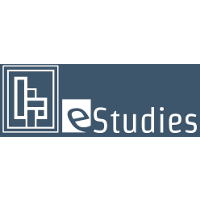How to find and use online resources
Alongside the university’s library catalogues and databases, the internet is a great resource to find literature as well as a great variety of other materials useful for your project. However, some websites are more useful and reliable than others and here are a few guidelines and suggestions.
- You can find a broad range of databases on the website of the North American History Department Library
Wikipedia
While Wikipedia is a good start to get an overview of a topic and get some basic info on certain peoples and events, you have to keep in mind that everyone with internet access can contribute articles to this internet encyclopedia. As a consequence, not all contributors are experts in their fields and the content of the article may contain factual errors and inaccuracies. Wikipedia itself states that “As a consequence of the open structure, Wikipedia "makes no guarantee of validity" of its content, since no one is ultimately responsible for any claims appearing in it.”[1] Moreover, you cannot always know who edited an article and why they did so.
Thus, Wikipedia does not count as a source that can be cited in your bibliography, and whatever info you find there should be backed up by additional scholarly texts.
A German alternative that offers short articles (written by scholars) on various topics, methods and concepts of history is Docupedia. On this site, you can find, for instance, introductory articles on Visual History, Cultural Turns, History of Decolonisation, Environmental History… The texts do not have a US-focus, yet are still useful for gaining some first insights into a certain field of study or a concept.
University Websites
University websites in the United States can easily be recognized by their .edu ending. They are usually a lot more trustworthy since their content has been written by scholars and often experts in the scholarly fields. Many universities have made parts of their research foci available online; some have a special research focus and provide digital material that you can use. Here are some examples:
- The Children and Youth in History Project at the George Mason University
- The Adoption History Project at the University of Oregon
- Emergence of Advertising in America at the Duke University
There are many, many more. Usually, they provide a short introductory essay about the topic as well as an overview of the sources that can be accessed online.
Other (digital) libraries and archives
Many presidential libraries have parts of their collections digitalized and thus provide a rich resource for research. Here are some examples:
- The John F. Kennedy Presidential Library that offers a great variety of material on the Civil Rights Struggle.
- Another great source is the King Center in Atlanta, Georgia, that has many materials relating to Dr. Martin Luther King Jr.
- The University of Houston also has an archive on American history called “Digital History,” covering all centuries, various topics, and personalities.
- The same is true for the digital history project “History Matters” of the George Mason University
You may also want to search PBS (Public Broadcasting Service), which is a bit similar to Deutschlandfunk. Although they do mini-series and documentaries and are not professional researchers, they often collaborate with highly-respected scholars, such as Henry Louis Gates, for their African American History Project. You cannot cite this as a source (unless you critically engage with the material, i.e. make it part of your analysis), but it may be useful to get an overview or find material suitable for class presentations.
The Library of Congress
The Library of Congress in Washington, DC, is the largest library in the world, containing not only books, Congressional records, magazines and (historical) newspapers, but also many primary sources such as maps, photographs, audio recordings etc. Especially noteworthy for our purpose is their “American Memory” Collection, a digital, searchable collection on various topics such as Advertising or African American History.
The Smithsonian Institution
The Smithsonian Institution in Washington, DC, is the world’s largest museum and research complex. The institution offers a wide variety of digitalized primary sources that can be searched by keyword and topic.
[1] Quoted from http://en.wikipedia.org/wiki/Wikipedia#Accuracy_of_content
